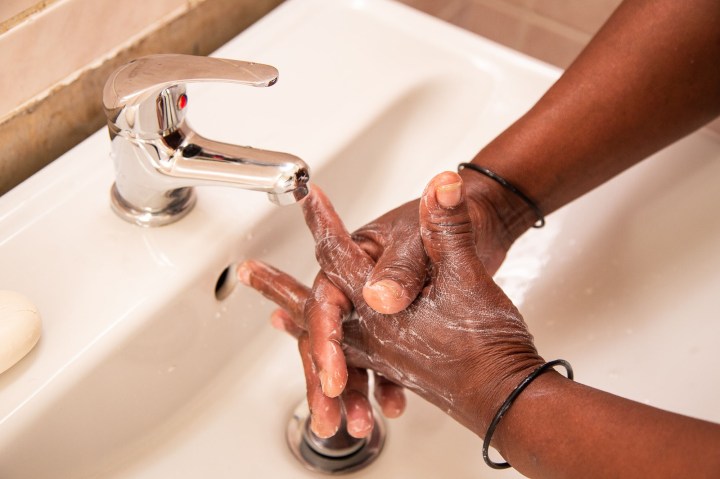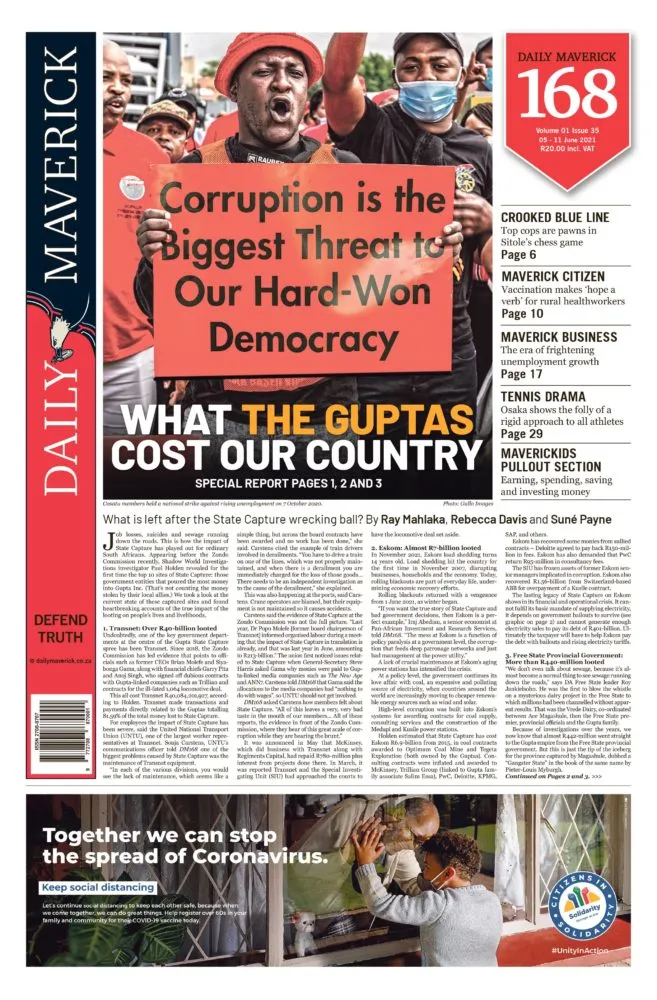BUSINESS MAVERICK 168
Soap opera: Sigh of bliss after small firm celebrates legal victory over advertising watchdog

Bliss Brands wins battle against competitor and industry regulator.
First published in the Daily Maverick 168 weekly newspaper.
In what was billed as a David vs Goliath battle, a soap and detergent manufacturer took its competitor Colgate-Palmolive and the Advertising Regulatory Board (ARB) to the South Gauteng High Court – and won.
Bliss Brands accused the board of overstepping its authority and acting unconstitutionally for ruling against the advertising of non-members, thereby constraining their ability to trade.
The ARB, the advertising sector’s self-appointed watchdog, is funded by the industry for regulatory purposes. It aims to maintain standards through its code of conduct. Complaints about its members are brought to the board for adjudication.
The board’s memorandum of incorporation (MOI) is binding on its members, who control the print, digital, and broadcast media in South Africa. Its MOI and the code allow the board to make rulings and orders against non-members. Thus, if a non-member refuses to comply with an ARB ruling, the members of the ARB are required to refuse the non-member’s advertising after an “ad alert” – a notice to members – has been issued. The advertiser cannot advertise unless it complies with the ruling.
The ARB has made rulings against products such as Herbex Ultraslim, USN Phedrocut Lipo XT and Homemark Aragon Oil, which forced broadcasters to stop accepting adverts for them even though the manufacturers were not members of the board.
In the Bliss matter, the ARB required the withdrawal of the packaging of its hygiene soap brand Securex. The complainant, Colgate-Palmolive, manufactures a competing soap brand, Protex.
It alleged Bliss had violated clauses of the ARB code, which deal with “exploitation of advertising goodwill” and “imitation” in advertising, raising legal issues to do with contraventions of copyright law and trademark infringement.
In the judgment delivered on 21 May, Judge Denise Fisher ruled that the ARB’s ad alert constrained the right to trade freely and was inherently an infringement of the rights of the person and property, thereby violating the Constitution.
Fisher noted that such disputes could – and should – be resolved in a court and that the procedures prescribed for hearings in terms of the procedural guide were inherently unfair.
Fisher upheld the complaint that the ARB sought to exercise judicial authority, when it was not a court, in contravention of section 165(1) of the Constitution.
The ARB is a self-regulating body, funded by its members. Non-members can make representations at hearings and appeal rulings, but are charged significantly more than members for each stage of the process.
For members, an appeal costs R80,500, whereas non-members pay R103,500 to the ARB. This excludes their legal counsel.
The ARB adjudicators are not lawyers but are experienced members of the ARB.
Gail Schimmel, CEO of the ARB, said the regulator had already lodged an application for leave to appeal.
“We believe the judgment, which ruled on an issue that was not actually raised by the parties in their original papers, is deeply flawed. This is … mostly because it will leave the consumer completely exposed when it comes to unscrupulous advertisers and claims, with no affordable recourse. The consumer, not the competitors, are the real losers if this judgment stands.”
Most marketers were not ARB members, she noted, saying if they could not make decisions for the guidance of their members, consumers would be left unprotected.
Liezel Bygate, marketing director for Bliss Brands, said Bliss had refreshed its MAC brand in 2017 because the label was dated.
Colgate-Palmolive “claimed we were trading on their marketing goodwill and advertising architecture. We went through the motions with the ARB and they ruled against us. They said we must change the packaging architecture. Although we did not agree with the merits of the ruling, we made a commercial decision to comply. We don’t have massive resources to fight it.
“Then they came after us over Securex, again under the guise of packaging architecture. Again, we went through the motions at the ARB, which dismissed the Colgate complaint but then ruled in their favour on appeal.”
Bliss went to court to deal with the matter.
“The ARB is wonderful as a forum for consumers, but competitors are using it to their advantage. They behave as if it’s a court room. Colgate [has] senior counsel involved from the beginning so legal costs are substantial, especially for smaller companies,” Bygate said.
Schimmel disagrees that the ARB process is being abused, saying it is “completely objective”, a cheap and fast alternative to court, and a forum where companies know they receive a fair hearing and have access to a two-tier appeal process.
“In addition, they can have issues considered that fall outside pure legal questions. Do they use it to their advantage? Only in so far as it is a cheaper and faster forum.” DM168
This story first appeared in our weekly Daily Maverick 168 newspaper which is available for free to Pick n Pay Smart Shoppers at these Pick n Pay stores.





















The ARB (successor to the liquidated Advertising Standards Authority) fulfils a reasonably necessary function in principle. I mean, could you be more useful and noble than defending the defenceless consumer? However, their approach is given away by the terminology they use – regulatory board, rulings, findings – it’s all designed to sound very authoritative and legalistic, but it remains a private charter, not a state regulator. Notwithstanding this, they are actually quite the bunch of bullies when it comes to copyright and trademark spats between providers. And decisions have a distinct outcomes bias towards donor members. The ARB should not allow itself to be used for this type of dispute – these should be sorted out at law in the state’s courts of law where the complex fields of copyright can be dealt with dispassionately and without fear or favour.